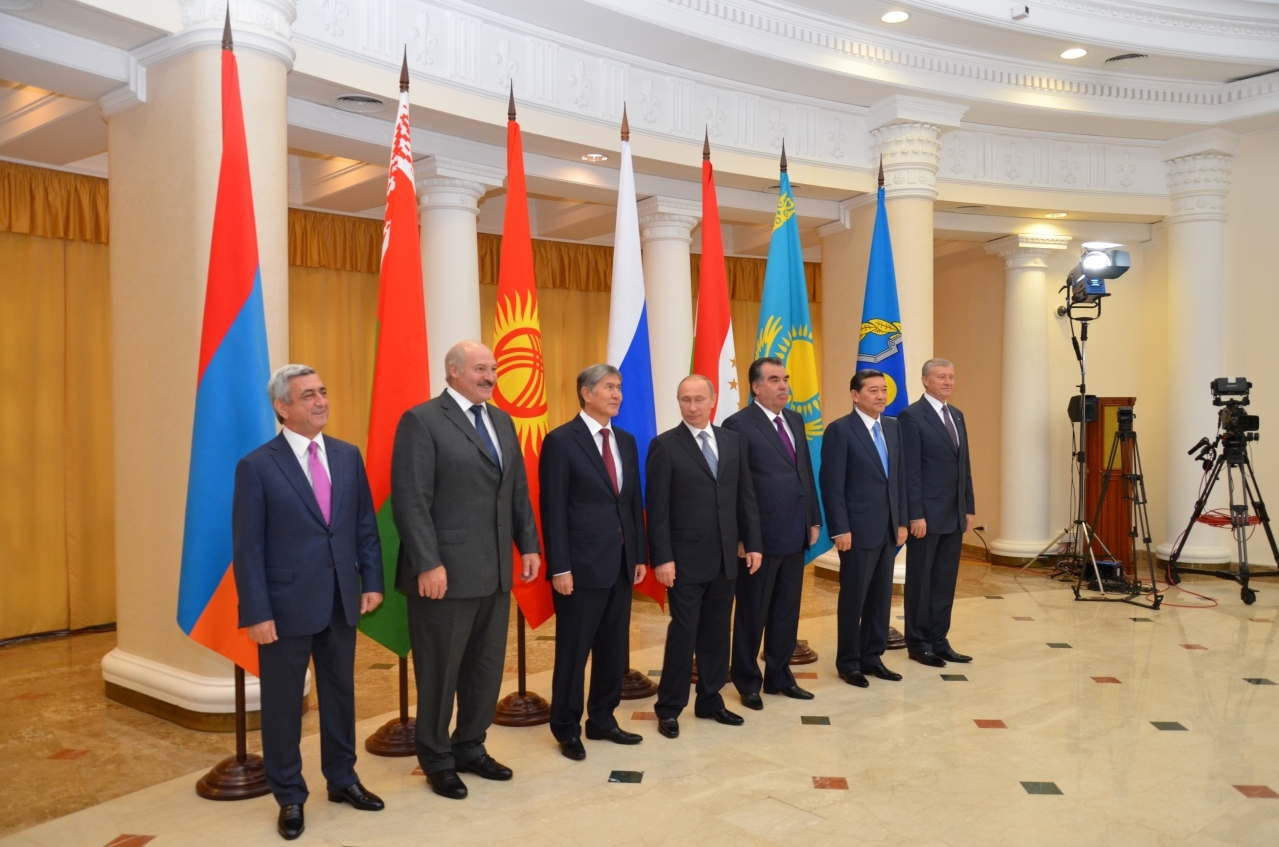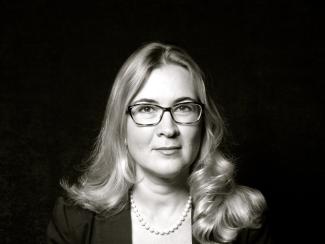Reflection on Russia’s Changing Image in the Post-Soviet Region
The two years preceding the Russian invasion of Ukraine suggested that Russia had adopted a measured policy toward the post-Soviet space. Faced with social protests in Belarus, a coup in Kyrgyzstan, the victory of pro-European president Maia Sandu in Moldova, the second war in Nagorno-Karabakh, and riots in Kazakhstan, Russia showed diplomatic ability without any hard arm-twisting of partners. In 2020, then Carnegie Moscow Center director Dmitry Trenin even concluded that “there will be no new edition of the empire”. The war in Ukraine has completely changed this analysis.

Most of the countries of the post-Soviet space adopt a cautious attitude to the war, without support or strong condemnation, because they are as frightened by potential strategic and economic consequences of Russian reprisals in the immediate future as by a more uncertain regional and global environment in the longer term. The war may have a negative impact on their relations with Russia, as well as on the future of regional organizations under the aegis of Moscow.
Diverse reactions: cautious, but mainly disapproving
Faced with the war in Ukraine, the reactions of the post-Soviet republics have diverged. Only Belarus, whose territory was used to launch the “special military operation” from the north, voted in March at the UN General Assembly (UNGA) against the resolution demanding the immediate withdrawal of Russian forces from Ukraine. However, President Lukashenko has so far resisted sending Belarusian troops to the front. At the other end of the spectrum, Moldova and Georgia have condemned the invasion and have accelerated their efforts to join the European Union; the former, along with Ukraine, was granted the much-desired status of candidate country in June 2022. The reactions of the other countries were a careful balance between not condemning Russian aggression and supporting Ukrainian territorial integrity. They abstained from voting at the UNGA (Armenia, Kyrgyzstan, Tajikistan, Kazakhstan) or avoided voting (Azerbaijan, Turkmenistan and Uzbekistan). It was probably Kazakhstan, Russia’s most important and closest partner in the post-Soviet space, that surprised most with its critical tone. President Tokayev, to whose rescue Russia had flown in January during the riots, stated bluntly that he recognized Ukraine’s territorial integrity, while other senior Kazakh officials said the country would not recognize the independence of the Donetsk and Lugansk people’s republics, would refuse the possible use of Collective Security Treaty Organization (CSTO) forces on Ukrainian soil, and would not become an instrument for circumventing Western sanctions. The other neighboring countries have been more discreet and have not made public statements that could provoke Russia’s ire; only Georgian authorities stated to be “in full compliance” with the financial sanctions imposed on Russia. Most countries have allowed citizen rallies in support of Ukraine and sent humanitarian aid, while calling for a diplomatic settlement.
Russia’s central role in security and economics
This balancing reaction can be explained by security and economic dependence on Moscow, which remains a central player in the region despite the gradual loss of its influence in favor of other actors. Frozen conflicts and the presence of Russian military bases and Russian-speaking populations that can be manipulated make these countries vulnerable in terms of security. Several Central Asian states see Russia as the guarantor of their security in the context of instability in Afghanistan. Armenia, a landlocked country operating in a hostile environment shaped by its historically complex relations with Turkey and Azerbaijan, is extremely dependent on Russia for its security. Several neighbors benefit from Russia’s arms sales and training of their armed forces, notably within the framework of the CSTO. Russia also remains a major trading partner (market, credits, energy supplier, transit route) for several post-Soviet republics. Kazakhstan, for example, depends on Russia to get its oil to Europe, and, under various pretexts, Russia has tried to intimidate it by suspending the transit of Kazakh oil to Europe through the Caspian Pipeline Consortium (CPC). Finally, Russia receives large flows of migrants, especially from Central Asia: their financial transfers are an important source of income for the budgets of the countries of origin and any reduction in them would risk economic and social destabilization.
The medium- and long-term impact
However, the cautious neutrality of the post-Soviet countries should not deceive. For more than three decades, they have been working to consolidate their sovereignty and national identity. None of them can approve the invasion of a neighboring country whose independence is the same age as their own. Calls by some Russian deputies or propagandists to “denazify” Kazakhstan or Russian threats against Transnistria arouse fear and rejection. The war will prompt Commonwealth of Independent States (CIS) countries to intensify partnerships with other global and regional players (China, Turkey, Iran, India, the European Union) in order to diversify their diplomatic, economic and energy room for maneuver and avoid unilateral dependencies. For example, since the beginning of the war in Ukraine, Turkey has signed a major strategic partnership treaty and a Preferential Trade Agreement with Uzbekistan, a strategic partnership treaty providing for the creation of an ANKA drone factory with Kazakhstan, and a joint declaration with Kazakhstan, Azerbaijan and Georgia on the East-West Transport Corridor. This war is also a real test for the future of regional organizations and integration processes in this space under Russian leadership: the Eurasian Economic Union (EAEU) and the CSTO. The Russian authorities’ ban on grain exports in March was denounced by Kazakhstan as contrary to the rules and interests of the EAEU. Kazakhstan does not support Russia’s attempt to give the CSTO the right to participate in peacekeeping operations conducted by a “coordinating state”. Fear of Russian expansionist ambitions and the desire to protect the former Soviet countries’ sovereignty may thus slow down or even block the development of these organizations. The war in Ukraine is tarnishing Russia’s image among post-Soviet countries; it reinforces and accelerates the centrifugal tendencies that have been underway in this space since the fall of the USSR.
Also find the dossier titled "A Dangerous Neighbour : Russia's Image After Ukraine" on ISPI's official website.

Available in:
Regions and themes
Share
Download the full analysis
This page contains only a summary of our work. If you would like to have access to all the information from our research on the subject, you can download the full version in PDF format.
Reflection on Russia’s Changing Image in the Post-Soviet Region
Related centers and programs
Discover our other research centers and programsFind out more
Discover all our analysesRussia, the Palestinians and Gaza: Adjustments after October 7th
The Soviet Union (USSR), and subsequently the Russian Federation as its internationally recognized legal successor, has consistently sought to play a visible role in efforts to resolve the Israeli-Palestinian conflict.
Deathonomics: The Social, Political, and Economic Costs of War in Russia
The report attempts to outline and examine a truly new phenomenon in Russian society, dubbed “deathonomics”—the making of a mercenary army against the backdrop of the Kremlin’s war in Ukraine, eventually replacing both the Soviet (conscript) and early new Russian (contract) armies. It notes that, by the end of 2023, this trend had turned the military service into one of the highest-paying professions in the country, something not seen in Russia on such a scale since the late 17th century.
Russia's Asia Strategy: Bolstering the Eagle's Eastern Wing
Among Russia’s strategic priorities, Asia traditionally played a secondary role compared to the West. In the mid-1990s, then Foreign Minister Yevgeny Primakov initiated a rapprochement with China and India. Then, in 2014, deteriorating relations between Russia and the West prompted Moscow to begin its “great pivot to the East”.
Kazakhstan After the Double Shock of 2022: Political, Economic and Military Consequences
The year 2022 represented a dual shock for Kazakhstan. In January, the country faced its most severe political crisis since independence, followed in February by Russia’s full-scale invasion of Ukraine, which cast uncertainty over the borders of post-Soviet states. These consecutive crises profoundly shaped Kazakhstan’s domestic and foreign policy.













